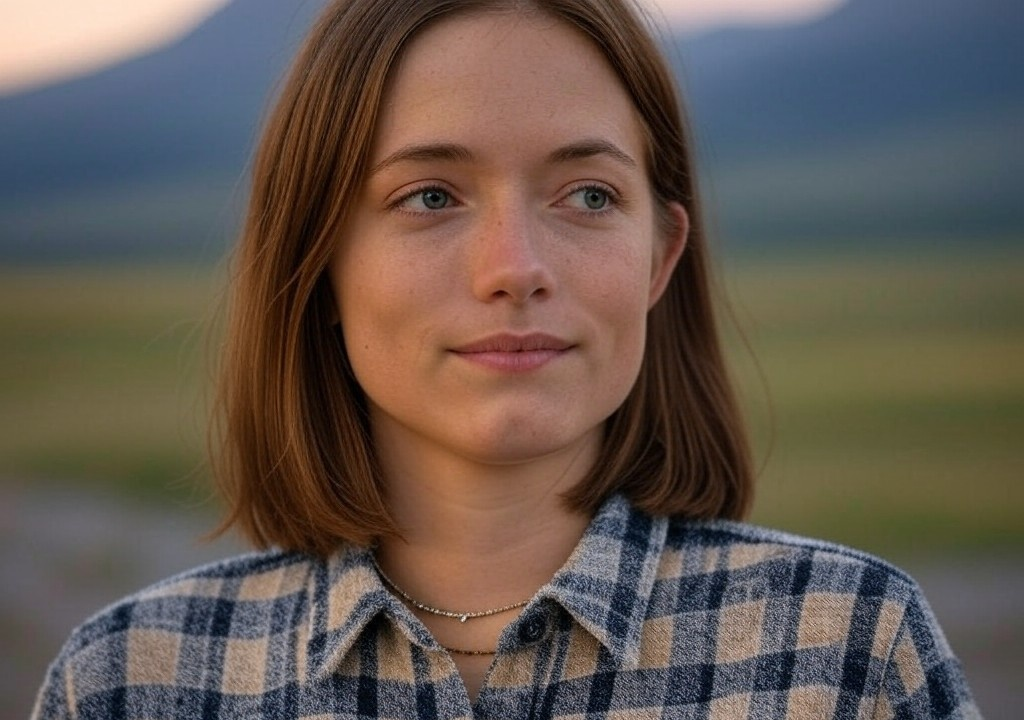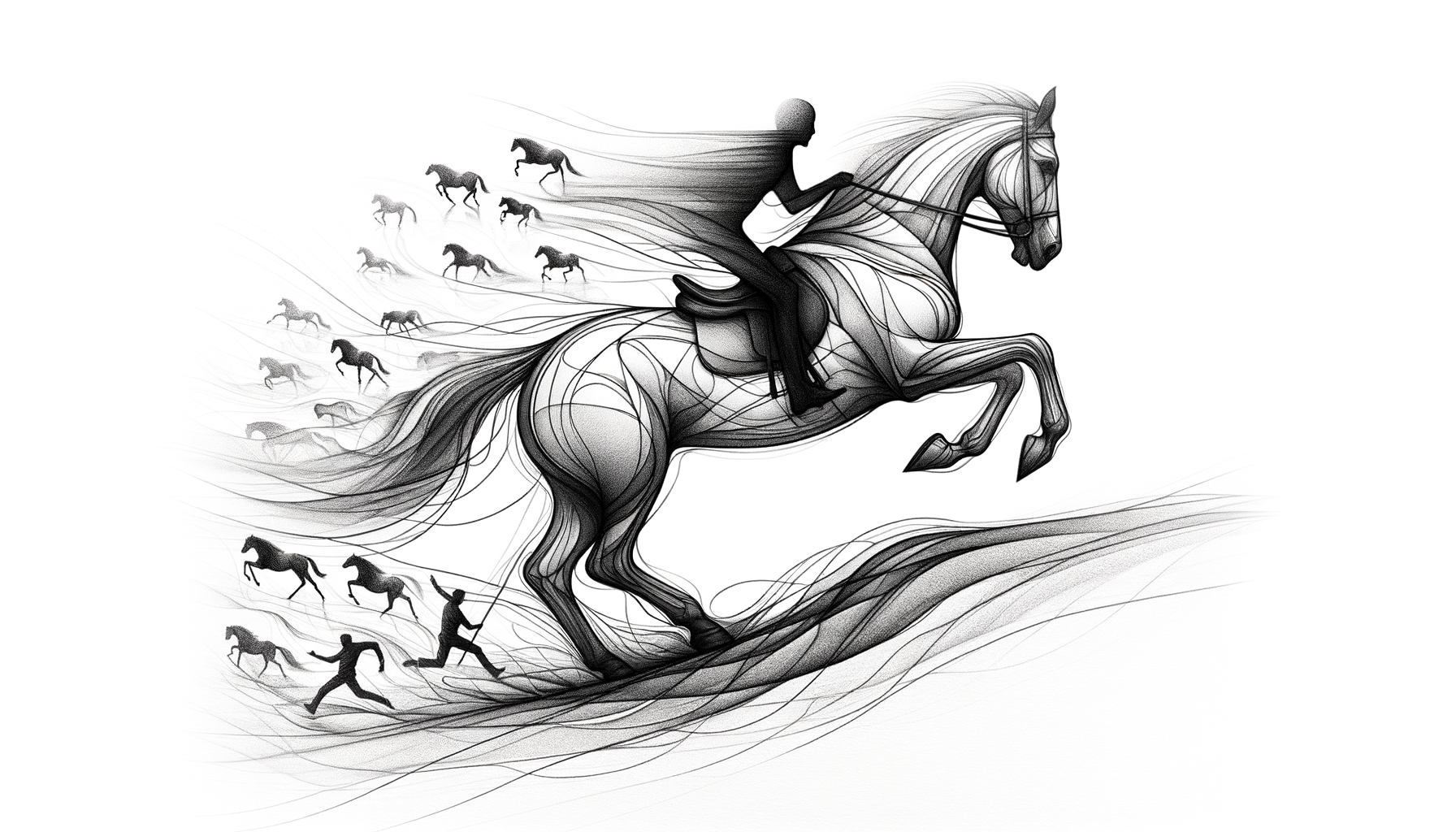When I was six years old, I fell off a horse. Not in the graceful, cinematic way where the hero rewinds in slow motion, lands softly in the dirt, and stands up with a meaningful grin. I fell the way toddlers fall out of bed—splat, with zero elegance and a lot of shock. My parents rushed over, brushing bits of prairie grass from my hair, and asked if I was okay. I wasn’t crying; I was laughing. I remember saying, “Let’s do it again.”
That’s probably where it started—a quiet, stubborn drive to keep getting back up after life tosses me into the dirt.
But my real purpose didn’t exactly gallop into my life on a shimmering stallion. It tiptoed in, disguised in the chaos of a breakup, a job I didn’t love, and one slightly ridiculous hobby involving a lot of paper.
The End of the Rope (Figuratively, That Is)
Before we get to the life-altering moment, let’s flashback to my mid-twenties. Picture me: tangled hair, boots caked in mud, and carrying bear spray like it’s an accessory (because in Montana, it is). I’d started working at the fish and wildlife department, a job that seemed noble but felt monotonous, like reading a weather report that never changes. I spent long days cataloging river levels and logging fish populations, and while I cared, I didn’t care. Back at home, my two-year-long relationship with an emotionally distant but objectively well-dressed guy—we’ll call him Nick to protect everyone involved—had hit the doldrums.
The thing about relationships is that sometimes they’re like those sourdough starters that everyone got obsessed with during quarantine: they look promising at first, but then they just kind of sit there, bubbling mildly, never turning into anything substantial. Nick and I had reduced ourselves to filling silences with Netflix reruns, fighting over whether to use his fancy French press or my battered percolator for coffee in the mornings, and answering “How was your day?” with, “Good.” Reader, it was not good.
I was stuck—stuck in my job, stuck in my relationship, stuck on what to do next. The ranch girl in me, the one who took tumbles and got back on her feet, seemed long gone.
The Paper Rose Incident
Here’s where it gets weird. Nick and I eventually called it quits. It wasn’t dramatic—just a quiet admission over that same French press coffee that neither of us was happy, and no amount of cold brew could fix it. After he moved out, I was left in a too-quiet apartment, considering the existential weight of all the furniture we’d split, where the oddly lumpy couch stayed with me like some symbol I would overanalyze for weeks.
One evening, desperate to occupy myself with anything other than doomscrolling or “fixing” my life, I remembered some tissue paper I had left over from a gift bag. You know that random tissue paper everyone keeps but never uses? For whatever reason, I sat on the floor and started folding. No YouTube tutorials, no Pinterest plans. Just folding, twisting, and taping bits together until—voilà—a vaguely flower-like creation appeared. It was ugly. I’m talking middle-school-art-project ugly.
But it made me laugh.
Laughter turned into curiosity. I Googled how to make proper paper roses. I tweaked, snipped, and fussed till I made something respectable. Soon, there were enough paper roses crowding my counters to make a small florist roll their eyes. It was silly but consuming, and for the first time in forever, I wasn’t thinking about what I was supposed to be doing or who I was supposed to be with. I just created—without judgment, without overthinking.
Discovering the Why
That’s when it hit me, somewhere between folding crepe-paper petals and taping delicate stems: the roses were just a metaphor. I wasn’t really making flowers—I was reclaiming the part of myself that used to take risks and laugh when I fell. I wasn’t just crafting; I was reconnecting with that six-year-old who wanted to “do it again.”
The joy I found in creating didn’t just mend the hurt from my breakup; it planted a seed for something bigger. I started writing poetry with the same reckless abandon I’d approached the roses with. I stopped micromanaging my life’s “big plan” and followed a trail of little things—writing residencies, short fiction, seeing beauty in ordinary places. Stories poured out of me as easily as rivers flow through Montana’s valleys, winding naturally, without force.
Sometimes, life doesn’t slap you in the face with purpose. It sneaks in quietly during the quietest moments—the unglamorous evenings when you sit alone on the floor surrounded by cut-up tissue paper or the unexpected laughter that spills out when something goes horribly wrong. Those are the breadcrumbs worth following.
What My Paper Roses Taught Me About Purpose
Here’s the thing about purpose: it’s rarely a lightning strike. For most of us, it’s like spotting a deer camouflaged in the woods. It’s there, waiting for you to notice, but ordinary life tries to distract you. The breakup, the burnt-out career, the Netflix reruns—they’ll demand center stage if you let them. But sometimes, if you get quiet enough, if you play with the thing that makes no sense to anyone else, you see it clearly. Purpose is less about grand epiphanies and more about uncovering, piece by piece, what’s already deep inside.
Through my very unplanned foray into paper roses, here’s what I learned about finding purpose:
1. Do Something. Anything.
When you’re stuck, don’t overthink. Get your hands busy. Whether it’s making the world’s ugliest craft project or reorganizing your closet, deliberate action gets the wheels turning.
2. Let Go of the Big Picture.
You don’t need a five-year plan. Start small. My big plan involved red paper folds—and it sent me down a wildly meaningful path. Who knew?
3. Follow the Fun.
Pay attention to what makes you lose track of time and quit caring about looking ridiculous. That’s your compass. Your biggest breakthroughs might come in the silliest moments.
4. Embrace Messy Midpoints.
Like most good things, purpose is awkward and incomplete before it feels beautiful.
Lessons from the Saddle
Sitting here now—years removed from that breakup, that middling wildlife job, and my brief yet dedicated stint as a paper florist—I’ve come to understand that purpose doesn’t gallop up to us like a perfectly tacked horse. It bucks us off, leaves us dusty, and dares us to figure out how to get back on.
Mine found me in a moment of quiet absurdity, but that moment was everything. Looking back, it wasn’t about the paper roses—I would’ve arrived here eventually. But those roses reminded me to slow down, trust the process, and rediscover the things that made my heart giddy.
So, here’s my advice to you: if you feel lost, make something, break something, or sit in your mess until the roses bloom. You don’t have to have it all figured out—just follow the laughs and the lopsided petals. You’ll find your way. And when you do? Get back on for another ride.




















